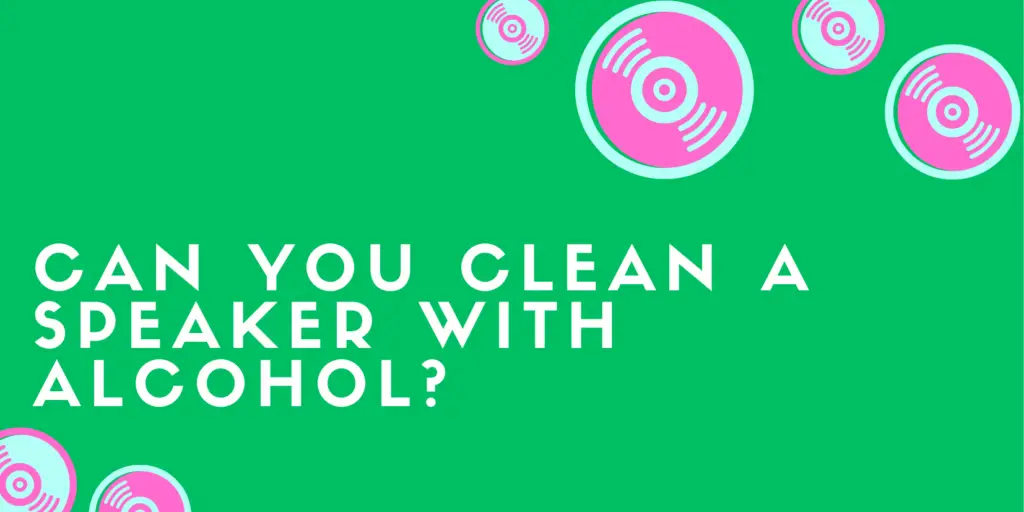Speakers are essential components of our audio systems, and over time, they can collect dust and grime that affect both their appearance and sound performance. Cleaning your speakers is a necessary maintenance task, but it’s crucial to choose the right cleaning method to avoid damaging these delicate components. One question that often arises is whether alcohol is a safe option for cleaning speakers. In this article, we’ll explore whether alcohol can be used to clean speakers and provide guidance on its usage.
Understanding Speaker Materials
Before discussing the use of alcohol, it’s important to understand the materials commonly found in speakers:
- Speaker Grilles: Speaker grilles or covers are typically made of fabric, mesh, or perforated materials.
- Speaker Cabinets: Speaker cabinets are usually made of wood, MDF (Medium Density Fiberboard), plastic, or other durable materials.
- Speaker Drivers: Speaker drivers, including woofers, tweeters, and midrange drivers, have diaphragms made of materials such as paper, plastic, or metal.
Can Alcohol Be Used to Clean Speakers?
Alcohol, specifically isopropyl alcohol (rubbing alcohol), is a common choice for cleaning electronics and surfaces due to its disinfectant properties and ability to evaporate quickly. However, its suitability for cleaning speakers depends on the specific component you’re cleaning:
- Speaker Grilles: Alcohol can generally be used to clean speaker grilles made of fabric or mesh. It can help remove stains, dirt, and grime effectively. However, it’s important to test a small, inconspicuous area first to ensure that the alcohol doesn’t cause any color fading or damage.
- Speaker Cabinets: Alcohol is not recommended for cleaning speaker cabinets, especially if they have a wood or veneer finish. Alcohol can strip away the finish, leading to discoloration or damage. Instead, use a mild cleaning solution (a few drops of dishwashing liquid mixed with warm water) and a damp, lint-free cloth for cleaning speaker cabinets.
- Speaker Drivers: Never use alcohol or any liquid cleaning solution directly on speaker drivers. Alcohol can damage the diaphragms and other components. If your speaker drivers need cleaning, use a dry, soft-bristle brush or compressed air to remove loose dust and debris. Avoid touching the diaphragms or drivers with any cleaning materials.
Safe Cleaning Practices
When using alcohol to clean speaker grilles or other speaker components, follow these safe cleaning practices:
- Use a clean, soft, lint-free cloth or cotton swab dampened with a small amount of alcohol.
- Do not apply excessive moisture; the cloth or swab should be only slightly damp.
- Test a small, inconspicuous area first to ensure that the alcohol doesn’t cause any damage.
- Wipe gently and avoid excessive pressure or scrubbing.
- Allow the cleaned surface to air dry completely before reconnecting or reassembling your speakers.
Conclusion
While alcohol can be used to clean certain components of your speakers, it’s important to use it cautiously and selectively. Avoid using alcohol on speaker cabinets or directly on speaker drivers, as it can cause damage. For speaker cabinets, use a mild cleaning solution, and for speaker drivers, rely on dry cleaning methods like a soft-bristle brush or compressed air. By using alcohol and other cleaning methods appropriately, you can keep your speakers looking and sounding their best for years to come.


